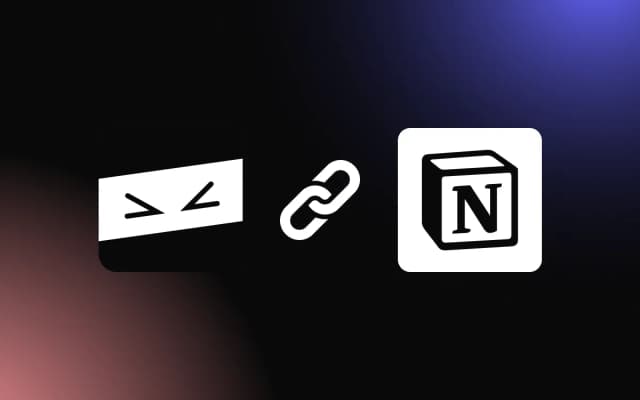
Integrating WhatsApp into a customer service strategy offers a direct and personalized way to communicate with customers, meeting them on a platform they use daily.
However, seamlessly incorporating this popular messaging app into existing customer service operations presents its challenges. The key to success is understanding how to effectively use WhatsApp's features to enhance interaction and resolve queries efficiently, without overwhelming the communication channels.
This article will discuss the benefits of using WhatsApp for customer service and outline strategies for integrating it into your business operations effectively.
The Rise of WhatsApp as a Customer Service Tool
WhatsApp's widespread adoption has positioned it as a key player in modern customer service strategies due to its extensive reach and versatile features.
Popularity and Reach of WhatsApp
WhatsApp is one of the most popular messaging apps globally, with billions of active users. Its vast user base offers businesses a unique opportunity to connect with a wide audience across different regions and demographics.
The platform's ubiquity makes it an accessible and familiar tool for customers, encouraging interaction and communication with brands.
Benefits for Customer Service
Using WhatsApp for customer service brings several advantages. It allows for real-time communication, making interactions immediate and personal. This responsiveness can significantly enhance customer satisfaction and loyalty.
Additionally, WhatsApp supports multimedia sharing, enabling customers to send images, videos, and documents, which can aid in resolving queries more effectively. Its end-to-end encryption ensures that all communications are secure, which is crucial for building trust and maintaining privacy.
Overall, WhatsApp's features make it an efficient and secure platform for delivering high-quality customer service.
Key Features of WhatsApp for Customer Service
WhatsApp has become an indispensable tool for customer service, leveraging its robust features to enhance interactions between businesses and customers. Here are some of the key features that make WhatsApp particularly effective for customer service.
End-to-End Encryption
One of the most significant features of WhatsApp is its end-to-end encryption, which ensures that all communications between the customer and the business are secure and cannot be accessed by third parties, including WhatsApp itself.
This level of security is crucial for maintaining customer trust, especially when handling sensitive information or personal details. It reassures customers that their conversations and data are private, which is essential for building long-term relationships and compliance with privacy regulations.
Multimedia Support
WhatsApp’s ability to support various multimedia formats — including text, images, videos, voice messages, and documents — greatly enhances the customer service experience. This versatility allows customers to explain their issues more clearly by sending pictures or videos, which can help customer service representatives diagnose problems and respond more effectively.
Similarly, businesses can use these features to provide detailed instructions, product information, or even troubleshoot issues through voice instructions or video guides.
Group Messaging and Broadcasting
Group messaging and broadcast features enable businesses to communicate with multiple customers at once, which is particularly useful for updates, announcements, or marketing campaigns.
Group messaging can be used for community building or support groups where customers can share tips and advice under the company’s moderation. Broadcasting allows businesses to send messages to many customers simultaneously without recipients seeing each other, keeping the interaction private and personalized.
This feature is ideal for sending notifications about new products, services, or special offers, ensuring that the business can reach a large audience efficiently.
Strategies for Integrating WhatsApp into Customer Service
Integrating WhatsApp into a customer service strategy can significantly enhance customer interactions and satisfaction. Here’s how businesses can effectively incorporate WhatsApp using a business profile, automation, and personalization.
Setting Up a Business Profile
The first step in integrating WhatsApp is to set up a WhatsApp Business account, which is designed specifically for small and medium-sized businesses.
This specialized profile allows companies to provide essential information such as business hours, location, description, and contact details. It also includes features like labels and catalog listings, which can help organize customer interactions and showcase products directly within the app.
Establishing a business profile helps to professionalize the user interaction, making it clear to customers that they are communicating with a legitimate entity.
Automating Responses
To manage customer inquiries efficiently, businesses can utilize WhatsApp’s automation features, such as quick replies and automated greeting or away messages. Quick replies save time by allowing businesses to reuse frequent messages, which can be sent with a simple command.
Automated messages ensure that customers receive immediate acknowledgment of their queries, even when no human agent is available. This can enhance customer satisfaction by reducing wait times and providing instant communication.
Maintaining Personalization
While automation can streamline communication, maintaining a personalized approach is crucial for effective customer service.
Personalization in WhatsApp can be achieved by using the customer’s name in conversations and tailoring responses based on past interactions, which can be tracked using WhatsApp’s CRM integration.
Additionally, human agents should take over complex queries where automated responses are insufficient. This ensures that while efficiency is maintained, customers feel valued and understood, fostering stronger relationships and loyalty.
Best Practices for Using WhatsApp Effectively
WhatsApp is a powerful tool for customer communication when used correctly. Here are essential best practices focusing on managing customer expectations and ensuring data security and privacy.
Managing Customer Expectations
Clear communication is key to managing customer expectations effectively on WhatsApp. Businesses should establish and communicate clear response times, and make these known right from the start of any interaction. Automated messages can inform customers of typical wait times and operating hours, helping set realistic expectations.
Additionally, it's beneficial to train customer service representatives to update customers regularly about the status of their inquiries or issues, especially if more time is needed to resolve them.
Ensuring Data Security and Privacy
Data security and privacy are paramount when using WhatsApp for business communications. Since WhatsApp uses end-to-end encryption, ensuring that conversations remain private and secure is manageable, but businesses must also comply with data protection regulations such as GDPR.
This involves obtaining consent before initiating contact via WhatsApp and ensuring that customer data is handled and stored securely. Additionally, businesses should educate their employees on best practices for data privacy to prevent accidental leaks of sensitive information.
Conclusion
In conclusion, WhatsApp is a powerful tool for enhancing customer service due to its widespread popularity and versatile features. This article has highlighted the strategic benefits of integrating WhatsApp into your customer service operations, including increased accessibility, personalization, and customer satisfaction.
By adopting the right approach and utilizing WhatsApp's capabilities, businesses can transform their customer service, offering more responsive, efficient, and personalized support. Employing WhatsApp effectively ensures that customers feel valued and can significantly impact the overall customer experience, fostering loyalty and trust.


